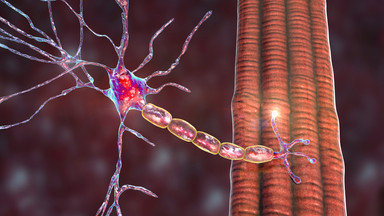Posted by Dee Cee Labs on Jun 18th 2025
How Magnesium And Potassium Support Neuromuscular Function
Every move you make—from walking and stretching to blinking or breathing—relies on the intricate connection between your nervous system and your muscles. This connection, known as neuromuscular function, allows your body to respond, react, and perform with strength and coordination.
Two key minerals play a foundational role in keeping this system operating smoothly: magnesium and potassium. These nutrients are vital for muscle contraction, nerve signaling, and overall mineral balance in the body. When levels are low, symptoms like muscle cramps, fatigue, spasms, or even numbness may appear—especially in those with high physical demands or underlying spinal issues.
Let’s take a closer look at how magnesium and potassium support neuromuscular health—and why chiropractic patients, athletes, and active individuals should pay special attention to these minerals.
Magnesium: the muscle relaxer and nerve regulator
Magnesium is involved in over 300 biochemical processes in the body, including nerve transmission and muscle contraction. In the neuromuscular system, it helps muscles relax after they contract and regulates the activity of calcium and potassium ions within nerve cells.
When magnesium is deficient, muscles may stay tight or spasm instead of relaxing properly. Nerves may also become overexcitable, leading to twitching, irritability, or impaired communication with muscle fibers.
Key benefits of magnesium:
-
Supports healthy muscle contraction and relaxation
-
Reduces cramping and post-exercise soreness
-
Promotes nerve signal efficiency and calm muscular control
-
Helps maintain proper bone mineralization for spinal and structural health
Potassium: the fluid and impulse balancer
Potassium is an essential electrolyte that helps transmit electrical impulses between the nerves and muscles. It also works alongside sodium to maintain fluid balance inside and outside of cells, which is necessary for smooth muscle function and recovery.
Low potassium levels may result in muscle weakness, fatigue, or irregular nerve signaling, especially after heavy sweating, illness, or prolonged physical stress.
Key benefits of potassium:
-
Regulates nerve impulses that control muscle movement
-
Maintains proper hydration and cellular fluid balance
-
Supports cardiovascular rhythm and muscular endurance
-
Works with magnesium to prevent spasms and fatigue
A dynamic duo for spinal and muscular health
Together, magnesium and potassium create a powerful team that keeps your neuromuscular system running at peak performance. Whether you're recovering from a chiropractic adjustment, dealing with muscle tension, or simply aiming to stay active and mobile, these two minerals are essential to your body’s coordination and stability.
Magnesium Potassium Aspartate by DC Labs
Magnesium Potassium Aspartate by Dee Cee Laboratories
This high-quality formula is designed to support proper neuromuscular function by delivering essential levels of magnesium and potassium in a highly absorbable aspartate form.
-
Magnesium helps regulate nerve impulses, support bone health, and reduce muscular cramps and tension
-
Potassium assists in muscle activity, nerve transmission, and mineral balance of the blood
-
Together, they work with sodium to maintain healthy water balance and optimal nerve-muscle communication
This supplement is especially beneficial for individuals with high physical stress, muscle tightness, or those under chiropractic care aiming to improve muscular coordination and postural control.
Final thoughts
Your nervous system and muscular system are constantly in communication—and magnesium and potassium are key to keeping that conversation clear and controlled. Deficiencies can lead to unnecessary pain, stiffness, or poor physical performance, especially in the spine and postural muscles.
Support your neuromuscular function with the right nutrients, and let your body move, recover, and align as it was designed to.

